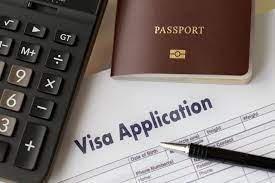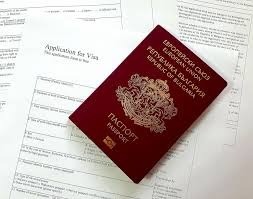
In an era of globalization, the desire to explore diverse cultures and experiences has led to an increase in international travel. For Canadian citizens eyeing the enchanting landscapes, rich history, and vibrant culture of India, obtaining the right visa is a crucial step. In this comprehensive guide, we delve into the intricacies of the Indian visa for Canadian citizens, providing valuable insights and tips to ensure a smooth journey.
Understanding the Basics:
- Types of Indian Visas: India offers various visa categories tailored to different purposes, including tourism, business, employment, and more. Canadian citizens need to identify the most relevant type based on their travel plans.
- Tourist Visa Requirements: For Canadian tourists, obtaining an Indian Tourist Visa is a common choice. Key requirements include a valid passport, a completed application form, passport-sized photographs, and proof of travel arrangements. Additionally, applicants may need to provide details about their itinerary and accommodation.
- Business Visa Essentials: Those visiting India for business purposes must apply for a Business Visa. In addition to general documents like a passport and application form, applicants need a letter from their Canadian employer and an invitation from the Indian business partner. A detailed itinerary and information about the business nature are also necessary.
Navigating the Application Process:
- Online Application: The Indian visa application process for Canadian citizens is predominantly online. Applicants need to visit the official Indian visa application website and complete the online form. It is essential to double-check all entries to avoid delays or rejections. INDIAN VISA AIRPORTS FOR ENTRY
- Appointment Scheduling: Once the online application is submitted, applicants are required to schedule an appointment at the designated visa application center. The appointment system ensures a streamlined process, allowing officials to manage the influx of applicants effectively.
- Biometric Data Collection: Biometric data, including fingerprints, is collected during the visa application process. Applicants need to be present at the visa application center on the scheduled date to provide this information. This step enhances security measures and helps verify the identity of the applicant.
Crucial Documentation:
- Valid Passport: A valid passport with at least six months of validity from the intended date of arrival in India is a fundamental requirement. Ensure that your passport has sufficient blank pages for visa stamping.
- Passport-sized Photographs: High-quality passport-sized photographs meeting specific requirements are mandatory. Adhering to the stipulated dimensions and background color is crucial to avoid any hiccups in the application process.
- Proof of Travel Arrangements: Whether you’re visiting for tourism or business, providing proof of your travel arrangements is essential. This includes round-trip flight reservations and details of accommodation in India.
- Financial Statements: To demonstrate financial stability during your stay, include recent bank statements. This assures Indian authorities that you have the means to cover your expenses while in the country.
- Travel Itinerary: Providing a detailed travel itinerary is particularly important for tourist visa applicants. Outline your plans, including places you intend to visit and the duration of your stay in each location.
Navigating Potential Challenges:
- Processing Time: While the Indian visa application process is generally efficient, applicants should be mindful of the processing time. It’s advisable to apply well in advance to account for any unforeseen delays and to ensure you receive your visa before your planned departure.
- Visa Fee Structure: Familiarize yourself with the visa fee structure and payment methods. The fees vary based on the type and duration of the visa. Make payments using the approved channels to avoid complications.
- Visa Validity and Extensions: Take note of the validity period of your visa. Overstaying can lead to penalties and complications for future travel. If your plans change or you need to extend your stay, explore the options for visa extensions well before your current visa expires.
Cultural Sensitivity and Respect:
- Understanding Cultural Etiquette: India is known for its diverse cultural norms and etiquettes. Familiarize yourself with the local customs and traditions to ensure a respectful and enjoyable experience. This includes appropriate dress codes, greeting styles, and dining etiquette.
- Language Considerations: While English is widely spoken in urban areas, learning a few basic phrases in Hindi or the regional language of the area you plan to visit can go a long way in fostering positive interactions with locals.
- Respecting Sacred Sites: India is home to numerous sacred sites and religious monuments. Show respect by adhering to any dress code requirements, removing shoes when necessary, and maintaining a quiet and contemplative demeanor.
Conclusion:
Embarking on a journey to India as a Canadian citizen is an exciting prospect filled with the promise of unforgettable experiences. By understanding the intricacies of the Indian visa process, preparing the required documentation, and embracing the cultural nuances, you can ensure a seamless and enriching travel experience. With the right knowledge and preparation, the vast tapestry of India awaits your exploration. Safe travels!





